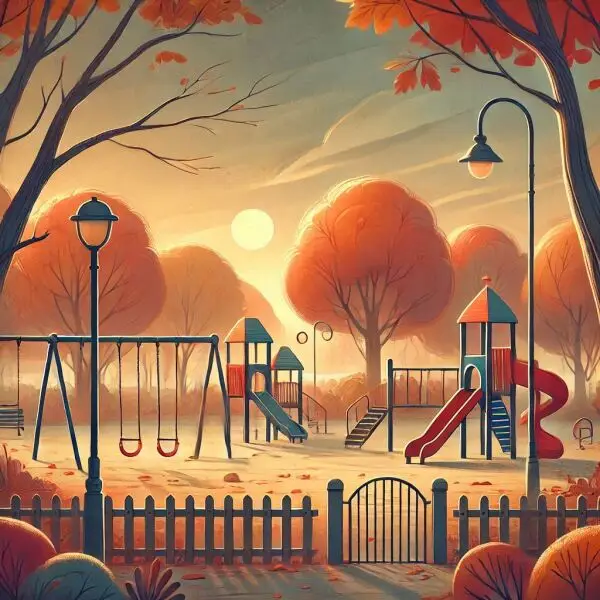Birth Crisis: Are We Heading Towards a Childless World?
Are we heading towards a childless world? Plummeting birth rates, aging population. Can we reverse it? Infobae consults experts to explore the consequences....
Table of Contents
- The decline in birth rates: An inevitable fate or an opportunity to reinvent ourselves?
- What is happening?
- Aging: A Trap or an Advantage?
- Why are families smaller?
- And now what?
Follow Patricia Alegsa on Pinterest!
The decline in birth rates: An inevitable fate or an opportunity to reinvent ourselves?
In 1950, life was like an episode of "The Flintstones": everything was simpler, and families were large. Women had an average of five children. Today, that number barely exceeds two.
What happened? Did we get tired of diapers or are we simply more busy watching streaming series?
The truth is that this change is not just a statistical curiosity; it is shaping up to be the most profound demographic change of the 21st century.
The Institute for Health Metrics and Evaluation at the University of Washington, in its study published in The Lancet, suggests that almost all countries will face a decrease in their population by the end of the century.
What is happening?
The Institute for Health Metrics and Evaluation at the University of Washington, in its study published in The Lancet, suggests that almost all countries will face a decrease in their population by the end of the century.
Japan, for example, could see its population halved by 2100. Imagine a baseball game in Tokyo with more robots than people!
The equation is clear: fewer births and more grandparents. By the end of the century, those over 80 years old could equal the number of births. Are we ready for a world with fewer children? The answer is not so simple.
Aging: A Trap or an Advantage?
The equation is clear: fewer births and more grandparents. By the end of the century, those over 80 years old could equal the number of births. Are we ready for a world with fewer children? The answer is not so simple.
While some see only problems, others, like Rafael Rofman from CIPPEC, believe there are opportunities: if we invest in education and skills, we could become more developed countries.
But if we continue as we are, we could end up like the Titanic, without lifeboats.
Women today choose to study and work before starting a family. Urbanization also plays its role: less space, fewer children. Karen Guzzo from the University of North Carolina mentions that globalization and labor changes have altered the path to adulthood, pushing young people to move to cities, study more, and, in the process, delay parenthood.
Sarah Hayford from Ohio State University reminds us that the significant declines in birth rates began around 2008, during the Great Recession. It seems that individual priorities have not changed as much as the economic conditions surrounding them.
Why are families smaller?
Women today choose to study and work before starting a family. Urbanization also plays its role: less space, fewer children. Karen Guzzo from the University of North Carolina mentions that globalization and labor changes have altered the path to adulthood, pushing young people to move to cities, study more, and, in the process, delay parenthood.
Sarah Hayford from Ohio State University reminds us that the significant declines in birth rates began around 2008, during the Great Recession. It seems that individual priorities have not changed as much as the economic conditions surrounding them.
Who wants to have children when you can't even find a decent coffee without waiting in line?
The decline in birth rates seems irreversible. Natalist policies have tried to change this trend, but with modest results. However, not all is lost. Rofman suggests that, instead of trying to reverse the inevitable, we should adapt to this new context and focus on improving the quality of life for future generations.
Nonetheless, the impact will be felt: fewer workers, more grandparents needing care, and an economy that will have to reinvent itself. Artificial intelligence and automation may take jobs, but fields like elder care will still require human hands. Are we ready for a world where caring for our elders is more critical than ever?
The key lies in innovation and solidarity. We need to rethink how to finance pensions and health needs in a world with fewer children. It's not just a numbers issue; it's a matter of the future.
And now what?
The decline in birth rates seems irreversible. Natalist policies have tried to change this trend, but with modest results. However, not all is lost. Rofman suggests that, instead of trying to reverse the inevitable, we should adapt to this new context and focus on improving the quality of life for future generations.
Nonetheless, the impact will be felt: fewer workers, more grandparents needing care, and an economy that will have to reinvent itself. Artificial intelligence and automation may take jobs, but fields like elder care will still require human hands. Are we ready for a world where caring for our elders is more critical than ever?
The key lies in innovation and solidarity. We need to rethink how to finance pensions and health needs in a world with fewer children. It's not just a numbers issue; it's a matter of the future.
Are we ready to face it? Or will we continue to watch the world change from the sofa? Only time will tell.
Subscribe to the free weekly horoscope
Aquarius Aries Cancer Capricorn Gemini Leo Libra Pisces Sagittarius Scorpio Taurus Virgo
-
 Bill Gates revealed to us the small habits for success
Bill Gates revealed to us the small habits for success
Have you ever wondered what Bill Gates, the co-founder of Microsoft and one of the richest men on the planet, does to maintain his success? -
 Influencer had sex with 101 men and could also be banned from Airbnb
Influencer had sex with 101 men and could also be banned from Airbnb
OnlyFans model Lily Phillips, famous for her love marathon, could be banned from Airbnb for breaking the rules! Scandal looming! -
 Revealing the Shocking End of the Pharaoh Ramses III: He Was Murdered
Revealing the Shocking End of the Pharaoh Ramses III: He Was Murdered
Scientists reveal, through advanced technology, the astonishing end of the life of the famous pharaoh, uncovering surprising historical twists. -
 Shocking Prophecies of Baba Vanga: Extraterrestrial Invasion and New Wars Would Change the World
Shocking Prophecies of Baba Vanga: Extraterrestrial Invasion and New Wars Would Change the World
Baba Vanga’s shocking predictions about extraterrestrials, wars, and a mysterious “new light” rekindle the fear of imminent alien contact. -
 The discovery that changes history: humans had already mastered fire 400,000 years ago
The discovery that changes history: humans had already mastered fire 400,000 years ago
Humans mastered fire 400,000 years ago. A new finding in Nature pushes back the timeline of the human technological revolution by hundreds of thousands of years.
I am Patricia Alegsa
I have been writing horoscope and self-help articles professionally for over 20 years.
Subscribe to the free weekly horoscope
Receive weekly in your email the horoscope and our new articles on love, family, work, dreams and more news. We do NOT send spam.
Astral and numerological analysis
-
 Discover your future, secret personality traits and how to improve in love, business and life in general
Discover your future, secret personality traits and how to improve in love, business and life in general
-
 Online Dream Interpreter: with artificial intelligence
Do you want to know what a dream you had means? Discover the power of understanding your dreams with our advanced online dream interpreter using artificial intelligence that responds to you in seconds.
Online Dream Interpreter: with artificial intelligence
Do you want to know what a dream you had means? Discover the power of understanding your dreams with our advanced online dream interpreter using artificial intelligence that responds to you in seconds.
-
 The reason why aliens have not contacted us yet
The reason why aliens have not contacted us yet
Discover if there is life in the universe: from microorganisms in the solar system to civilizations in distant galaxies. Where is the alien? -
 Solving the mystery of the mummy found in a church
Solving the mystery of the mummy found in a church
Mystery solved! Mummy in Austrian church reveals an astonishing embalming method unique, different from Egypt and Europe. -
 Revolutionary advance: Early diagnosis of memory loss in older people
Revolutionary advance: Early diagnosis of memory loss in older people
Researchers from Mayo Clinic have discovered a breakthrough regarding memory loss in older adults, affecting the limbic system. Exclusive details in Infobae. -
 Scandalous fight at a Bad Bunny concert!
Scandalous fight at a Bad Bunny concert!
A scandalous fight broke out while singer Bad Bunny was performing live at one of his concerts in the United States. -
 Discover a 2 Billion-Year-Old Stone: Key to Evolution
Discover a 2 Billion-Year-Old Stone: Key to Evolution
Discover a 2 billion-year-old stone! It could unveil secrets about the evolution of life and sets a record in microbial life findings. -
 Reduce the risk of liver tumors by up to 35% with statins
Reduce the risk of liver tumors by up to 35% with statins
The National Cancer Institute of the USA reveals that the likelihood of liver tumors decreases by up to 35%. Stay informed and take care of your health! -
 Eliminate cholesterol with this hot infusion, according to science
Eliminate cholesterol with this hot infusion, according to science
Scientific studies have shown that green tea can reduce LDL cholesterol. -
 What does it mean to dream of acquaintances?
What does it mean to dream of acquaintances?
Discover the true meaning behind your dreams about people you know - find out how these people may be reflecting emotions and situations in your life! -
 Microscopic fossils allow us to know how to combat global warming
Microscopic fossils allow us to know how to combat global warming
Microscopic fossils reveal how ancient global warming events, linked to volcanic activity, help to understand current climate change. -
 What does it mean to dream of a divorce?
What does it mean to dream of a divorce?
Discover the meaning behind your dreams with this article on What does it mean to dream of divorce? Learn how to interpret your dreams and take control of your love life. -
 What does it mean to dream of wounds?
What does it mean to dream of wounds?
Discover the dark meaning behind dreams with wounds in this fascinating article. Take control of your dreams and learn how to interpret their hidden message. -
 Love in 2026, According to Your Zodiac Sign
Love in 2026, According to Your Zodiac Sign
What each zodiac sign can expect for the year regarding love, partnerships, and romantic relationships of any kind. -
 What does it mean to dream of scarves?
What does it mean to dream of scarves?
Discover the fascinating world of dreams with our article: What does it mean to dream of scarves? Learn their meaning in different contexts and find out how they influence your life.